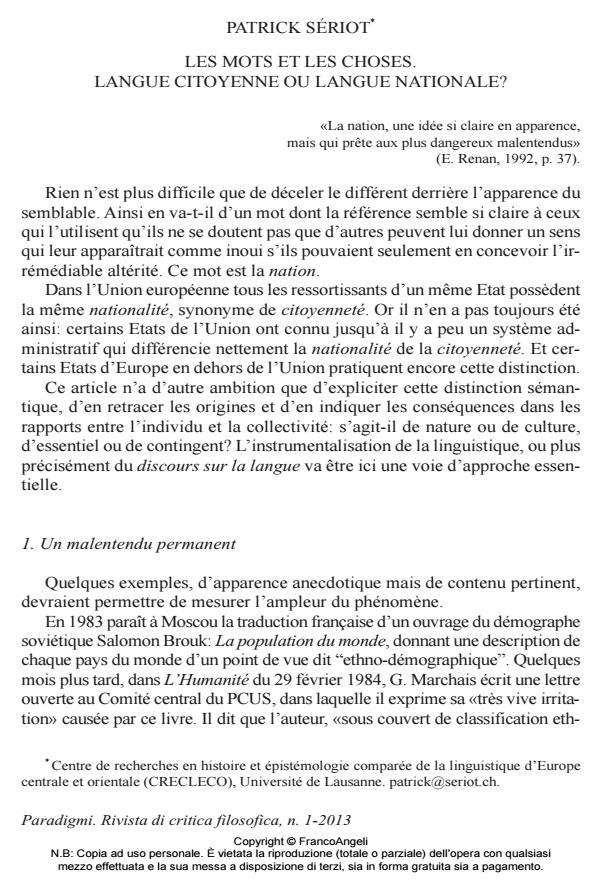Words and Things: Citizen Language or National Language?
Journal title PARADIGMI
Author/s Patrick Sériot
Publishing Year 2013 Issue 2013/1
Language French Pages 16 P. 21-36 File size 175 KB
DOI 10.3280/PARA2013-001003
DOI is like a bar code for intellectual property: to have more infomation
click here
Below, you can see the article first page
If you want to buy this article in PDF format, you can do it, following the instructions to buy download credits

FrancoAngeli is member of Publishers International Linking Association, Inc (PILA), a not-for-profit association which run the CrossRef service enabling links to and from online scholarly content.
In the European Union all the members of a state community share the same nationality, which is a perfect synonym of citizenship. But this has not always been so, and some European states still draw a sharp line of division between citizenship and nationality. This distinction heavily relies on a naturalistic approach to the very idea of community, the foundations of which is a linguistic definition of the nation. What is at stake here is the difference between the (French) Jacobine and the (German) Romantic definitions of the relationship between state, nation and language.
Keywords: Jacobine vs Romantic ideologies, Mother Tongue, Nation, National language, State
Patrick Sériot, Les mots et les choses. Langue citoyenne ou langue nationale? in "PARADIGMI" 1/2013, pp 21-36, DOI: 10.3280/PARA2013-001003